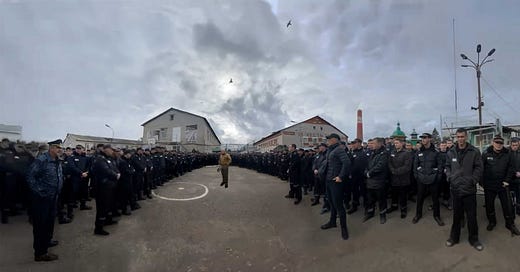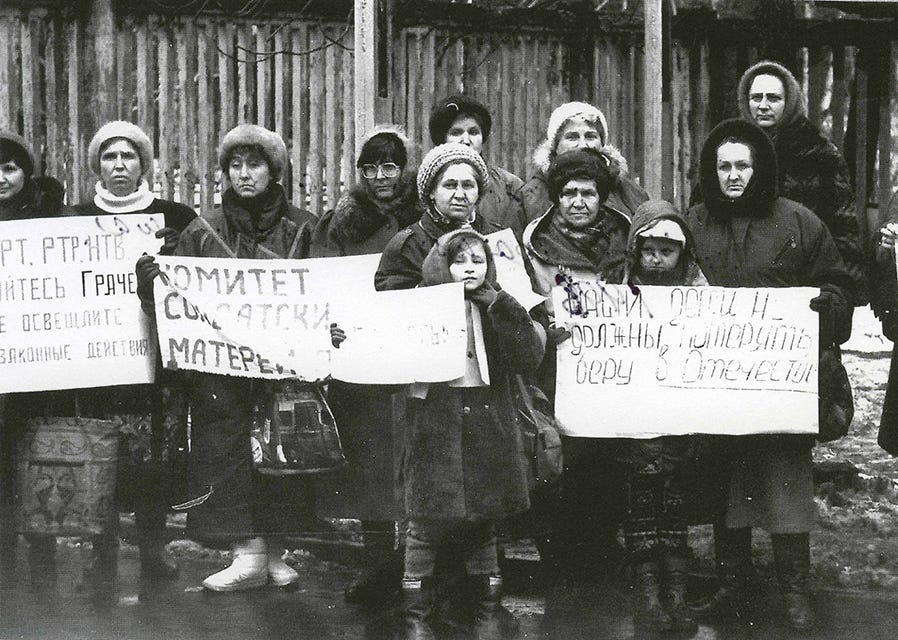Jul 16: Borogan & Soldatov, Russia’s Army Is in Disarray But Will Keep Fighting
As published by CEPA on Jul 14, 2023
Russia’s Army Is in Disarray But Will Keep Fighting
By Irina Borogan & Andrei Soldatov, CEPA, July 14, 2023
Just weeks before the June 23-24 mutiny, the Wagner mercenary group captured a lieutenant colonel of the Russian army near the Eastern Ukrainian city of Bakhmut.
He was brutally beaten and forced to make a humiliating statement on camera confirming Wagner’s claim that he was taken prisoner after his soldiers attacked Wagner troops. The video went viral on telegram channels connected to a mercenary leader and ex-convict Yevgeny Prigozhin – and met with complete silence from Russia’s military leadership. Next month, Prigozhin launched his “march of justice,” Wagner seized the key headquarters city of Rostov-on-Don and marched towards Moscow, while the Russian army remained idle.

There followed the infamous videoed conversation between Prigozhin and Deputy Defense Minister Yunus-Bek Yevkurov, and Deputy Chief of Staff Vladimir Alexeyev at the Southern Military District’s headquarters where Alekseyev, effectively head of intelligence for the conflict, laughed at the idea of giving up Chief of Staff Valery Gerasimov and Defense Minister Sergei Shoigu to Prigozhin and his mutineers. “You can have them!” he said. Then, on July 13, the commander of the 58th Combined Arms Army (CAA), a frontline grouping in Ukraine, Major General Ivan Popov, issued an audio statement, attacking Gerasimov and accusing the army high command of treachery. (Popov was relieved of his command as a result of this dispute.)
These are clearly significant events and tell a fascinating story about the upper echelons of the Russian army. The Kremlin’s forces are visibly squabbling and engaging in bad-tempered public disputes on the tactical and sometimes strategic conduct of the war. Senior officers die in missile strikes, questions are asked about how their locations were leaked, treachery is suggested, and meanwhile, reports appear that a large swath of the command structure — perhaps close to 30 officers — has been arrested or relieved of command.
And yet, the Russian army is not about to collapse. Whatever the state of morale in the invading army, it is not poised for complete collapse. The Russian army may fight inefficiently, and it may suffer serious reverses, but it will keep fighting.
To understand the issue, Western observers should grasp that the Russian army has operated for generations by a very different set of standards.
The key principle is that violence is good and is widely accepted. It is viewed as a means to maintain discipline among soldiers – in this case, it’s called dedovshchina or hazing, usually conducted by more experienced soldiers towards young recruits, and is encouraged by officers content to rely on bullying given the NCO ranks are too thin. If the violence is committed by officers, including generals, it’s called rukoprikladstvo — assault.
Hazing is practiced even in the most professional elite Russian military units, like special forces Spetsnaz. Six months before the full-scale invasion started, two commanders of the 14th Special Forces Brigade were charged with raping a soldier using a mop. The scandal was so big the brigade couldn’t keep it secret, and the official investigation was launched. Physically attacking a fellow officer as a way of establishing discipline (an act strictly forbidden by the armed forces codes of for example the US and British militaries) was used by none other but General Sergei Surovikin, the most prominent Russian general in the war against Ukraine who was accused of assaulting a subordinate officer in 2004. Such behavior is clearly not career-ending (unconfirmed reports say Surovikin is under arrest for links to the Wagner uprising.)
Acceptance of violence among the rank and file is hardly something that emerged under Putin. In the second half of World War II, the highly decorated Marshal Rodion Malinovsky was summoned to Georgi Zhukov, the most prominent Soviet general of the war. These were not the disastrous days of 1941, and victory was already palpable, but Malinovsky went to the meeting with Zhukov with a heavy heart:
“Knowing what he [Zhukov] was like, I went with the intention . . . if he scolds me — I would scold him, if, God forbid, he hit me – well, I’ll hit him back,” Malinovsky wrote in his memoirs.

Stalin purged the Red Army, killing off the most capable officers, but he, too, can hardly be blamed for violence in the military. The memoirs of the Soviet Marshal Semen Budyonny, the most decorated Red Army cavalry officer, told how his outstanding performance during World War I made him a knight of the St. George’s Cross, the top Russian military award, four times over. It would have been five, he said, but he was denied it because of his rukoprikladstvo – that is, physical assaults on his comrades-in-arms, fellow soldiers in the Tsar’s army, who were at that moment fighting the Germans. This didn’t hurt Budyonny’s career in the Tsar’s army or the Red Army.
The violence within the ranks is complemented by the promotion of thoughtless obedience to orders from senior commanders and the brutal discouragement of individual initiative. Challenging a commanding officer is not permitted, even if his behavior is irrational, criminal, or puts troops in danger. Popov, commander of the 58th CAA, was dismissed for raising with Gerasimov the issue of ineffective counter-battery fire on what he described as Ukraine’s devastating artillery fire.
This combination doesn’t make the Russian army the most professional military. But it does make it a formidable fighting force because the level of accepted casualties in the Russian army is way higher than in any modern army in the world. That level is accepted universally — by the officer corps, by soldiers, by their relatives, and the society as a whole. The only attempt by civil society to introduce accountability for the military was made during the First Chechen War when soldiers’ mothers formed the Soldiers Mothers’ Movement — but this initiative was swiftly crushed by the Defense Ministry many years ago.
Society also traditionally accepts a thick cloak of secrecy around the army, even knowing that behind this lies a near-absolute license for commanders to do whatever they want to their men.
Western observers tend to focus on historical examples of when the Russian army did collapse, namely in 1917, making the revolution possible. But the Tsar’s military was not the only army that mutinied during the Great War — the French army saw 68 mutinies in its 112 divisions, but the French Republic survived. Thus, this historical reference could be counterproductive.
Another example constantly cited is the unprecedented number of defections during World War II — when Red Army soldiers and officers surrendered in multiple thousands to the Wehrmacht in the first and second years of the war.
But the fixation on that example has already led to poor judgments about the army’s real nature. The Russian exiled dissident movement of the 1980s responded to the Soviet invasion of Afghanistan by forming a movement called Resistance International to encourage defections by Soviet soldiers.
They disseminated leaflets, had a radio frequency at their disposal, and even printed a fake edition of Red Star, the Soviet army newspaper. They believed the defections would help to defeat the Soviet army in Afghanistan, and it might lead to the collapse of Soviet rule. “At the end of the day, our joint efforts helped to move 16 defectors from Afghanistan to the West,” the famous dissident Vladimir Bukovsky, the brain behind Resistance International, admitted to the authors of this article. Obviously, the strategy failed.
Nor has the war in Ukraine generated a large number of defections, and the reason is the same – the war is being fought in foreign territory, and the combatants are promised a return home and a good packet of money: there is thus no real incentive to change sides.
The Russian Army cannot be judged by Western standards because, despite the low morale of the troops and the passivity of officers, the Russian military is ready to pay a much higher price. “Now we need victory only, one for all of us – for any price,” – says the popular song from a Soviet film Belarusian Station about the Great Patriotic War. And these days, it means that we simply don’t care how many soldiers are killed.
Irina Borogan and Andrei Soldatov are Nonresident Senior Fellows with the Center for European Policy Analysis (CEPA.) They are Russian investigative journalists, and co-founders of Agentura.ru, a watchdog of Russian secret service activities.






as we say and they started on TV news in Europe for a year now ""according to unconfirmed data"" we know that Poles have enough cause Ukrainian just abuse them! and ukrainian's gov. just spreads such news unconfirmed to get more and more money plus to get just for free to European Union! just like that!!!!